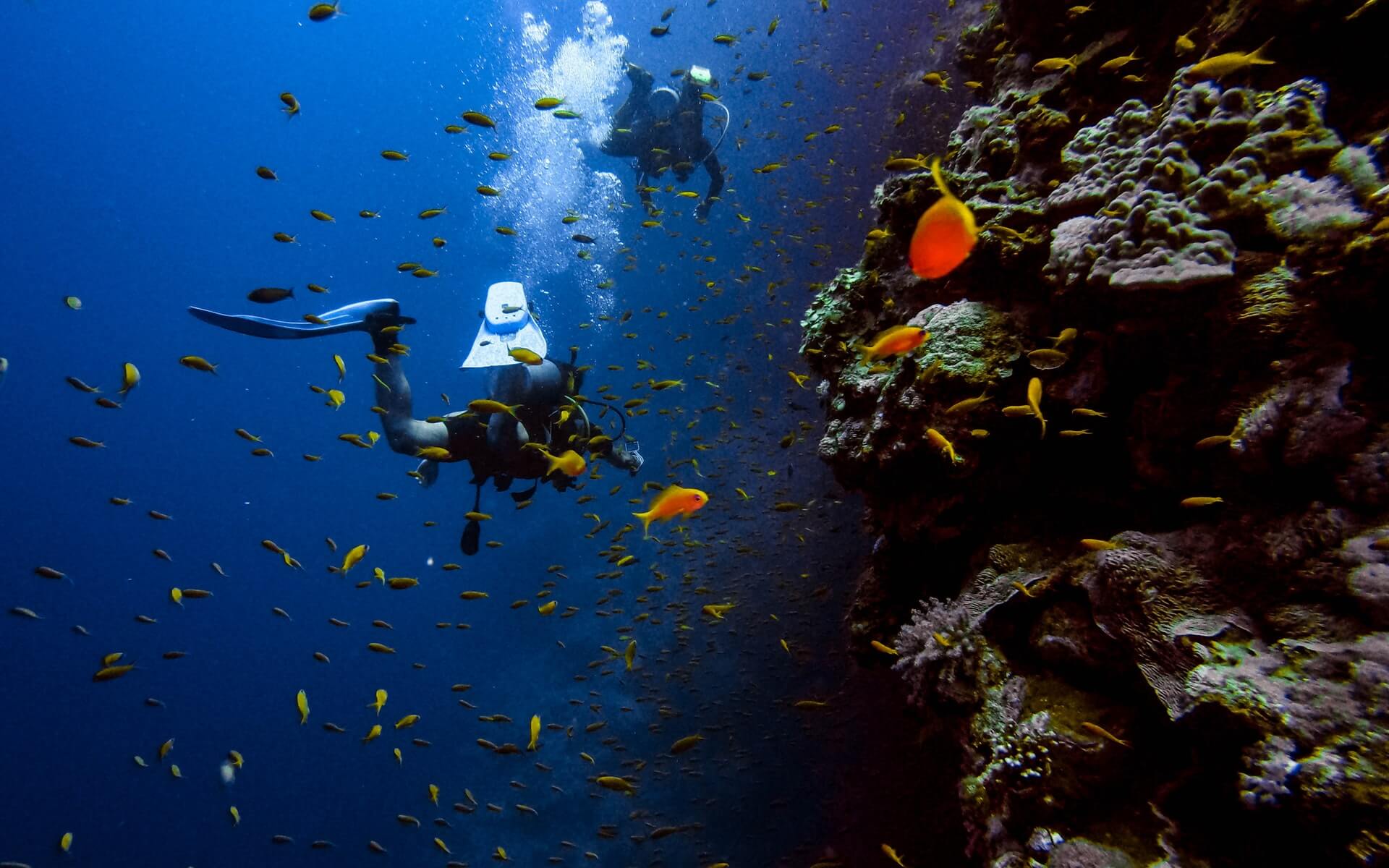Scuba diving is one of those activities that has filled the life bucket list of many people, but just what does it take to actually get into scuba diving? Perhaps you are planning to take a vacation out of town or out of the country after staying in your new home built in your purchased lot for sale for so long, where one of the activities is to do scuba diving. One may wonder on questions that wonder on what kind of training is involved behind getting into scuba diving, whether you should buy or rent gear for it, if you need certification to be able to do scuba diving, what equipment is used for the activity, and the like. This where this blog post has got you covered – let’s start with what you need to know to get into scuba diving so that you can finally explore the world underwater.
What You Need in the Pre-Diving Situation
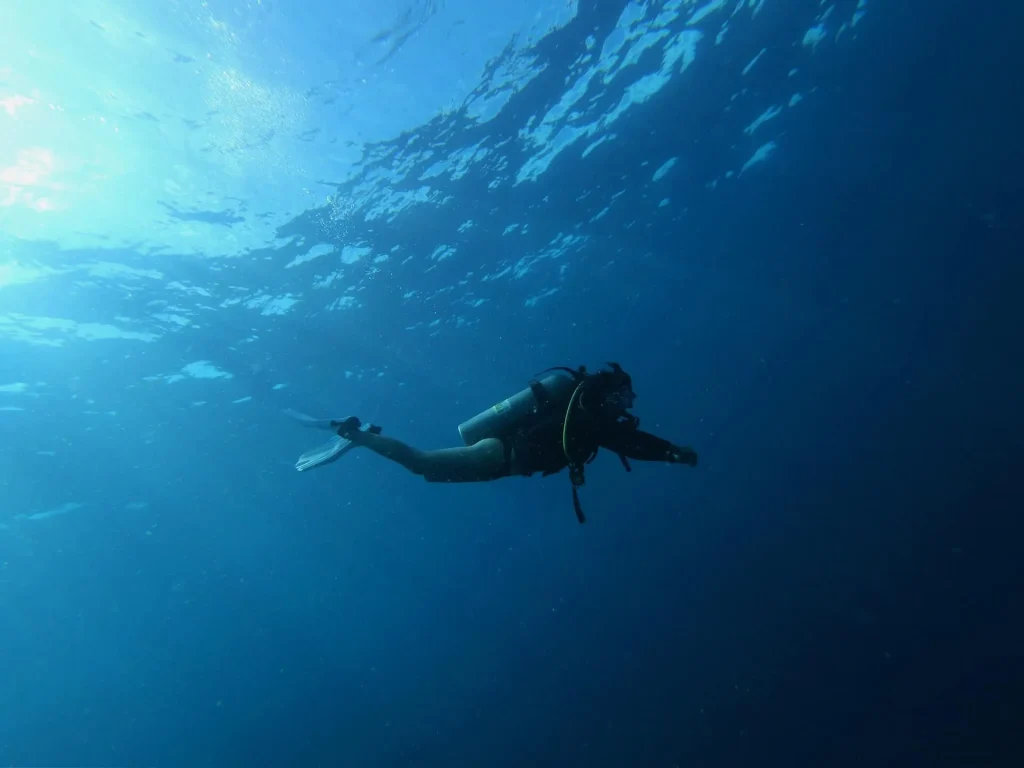
Assess whether you are fitting of the physical requirements
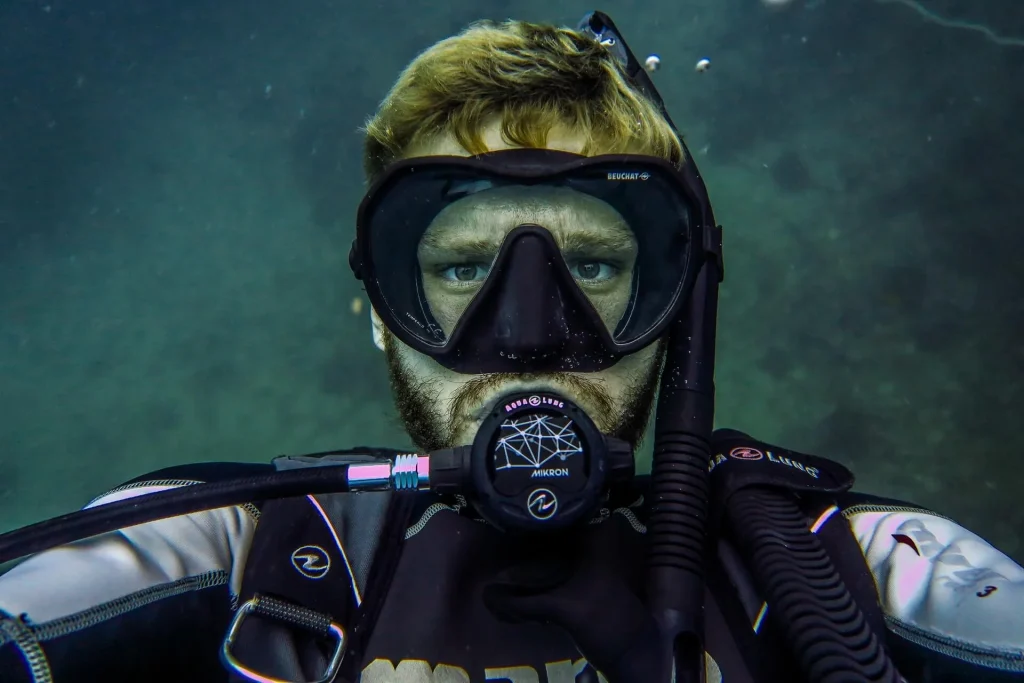
When it comes to something like scuba diving, being comfortable in water is important. Although scuba diving is not something we humans normally do like walking and sitting, that does not mean that only the super fit or a select few can only enjoy scuba diving. With modern advances in diving equipment, training, and medicine, everyone from all ages can enjoy scuba diving. However, there are medical conditions that are contraindicated or not suitable for scuba diving. Because of this, it’s important to make sure to read the diving medical questionnaire before enrolling in a scuba diving course.
In your first diving course, you’ll have to be able to tread in water/float for 10 minutes and be able to swim 200m. If you’re not sure if you can achieve this in the ocean, a number of sessions in pool to get yourself familiarized before you start your diving course will help you be more confident. After all, the instructors in your diving course will help you along the way if ever you enroll in a diving course.
Decide on a scuba diving course
A variety of diving courses are available to people that will let them enjoy the diving experience safely. Diving in itself has risks, but it is through enrolling in a proper diving course that divers learn how to properly check and use their gear by following the proper safety guidelines and procedures. Furthermore, there are diving courses offered called “try dives” where anyone can just show up to a diving center and try the diving experience in a pool with no commitment, just to get a feel for diving when they’re curious of actually trying the actual diving experience itself but still aren’t sure. Do a “try dive” session first so that you’ll know if diving really is for you before you spend a lot of money booking a holiday far from your house and lot that involves expenses for diving just to wonder if diving really is for you.
Dare to open your eyes!
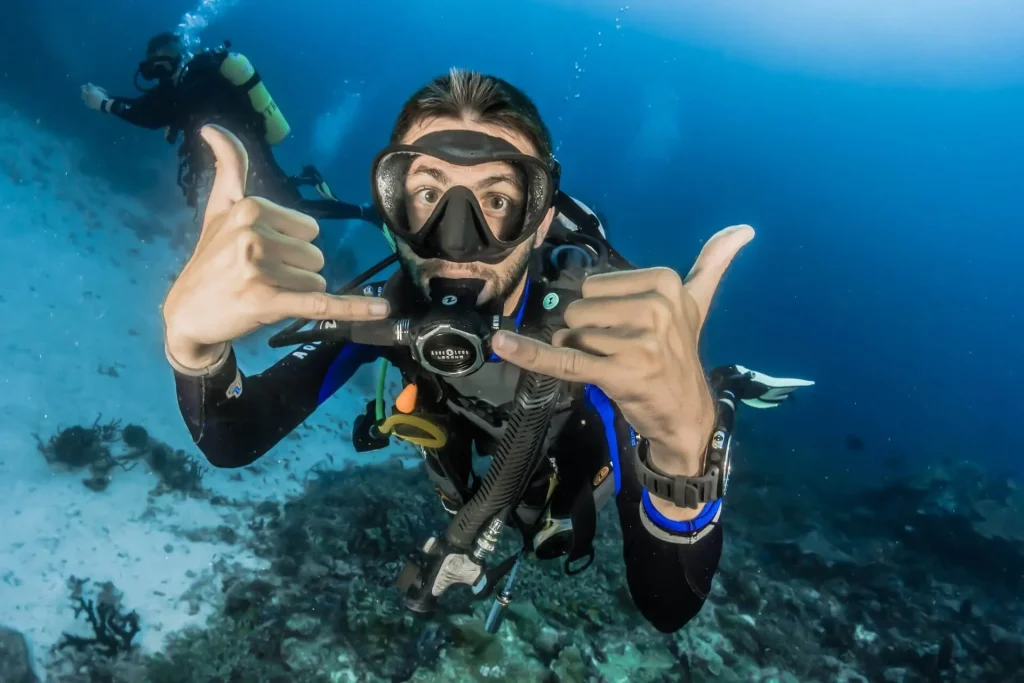
One thing you’ll have to get used to when getting into diving is opening your eyes underwater. Some people worry about opening their eyes underwater because they think it’ll sting, but it won’t sting too much in reality. Getting used to opening your eyes underwater will help you because in your diving course, you’ll have to be underwater for 1 minute without a mask and do a no mask swim. Moreover, the more comfortable you are with opening your eyes underwater, the more unnecessary stress you will avoid once you actually start scuba diving during your diving course. There will be times when water will get in your eyes, and you will have to deal with it because scuba diving requires attention at all times to follow the proper safety protocols. If you freak out if some water gets in your eyes while scuba diving, it won’t help you very much.
You can learn important diving theories & practical skills with the help of an instructor
Once you enroll in a scuba diving course, it will be divided into two parts: the first part is focused on the theories and concepts about scuba diving that you have to study, and the second part is focused on is the practical skills of scuba diving that an instructor will teach you.
In studying your diving theories, these are some of what you will have to learn:
· Buoyancy basics
· Ear equalization basics
· Nitrogen absorption
· Safety stops
After studying the diving theories, you will then be able to finally get in the water. It’s important to remember that a mastery of the basics is required, like knowing how to operate your regulator (apparatus) or clearing water from your scuba mask. Apart from these skills, a certified scuba diving instructor will also teach you problem management related to scuba diving and underwater communication.
Should you buy or rent scuba diving gear?
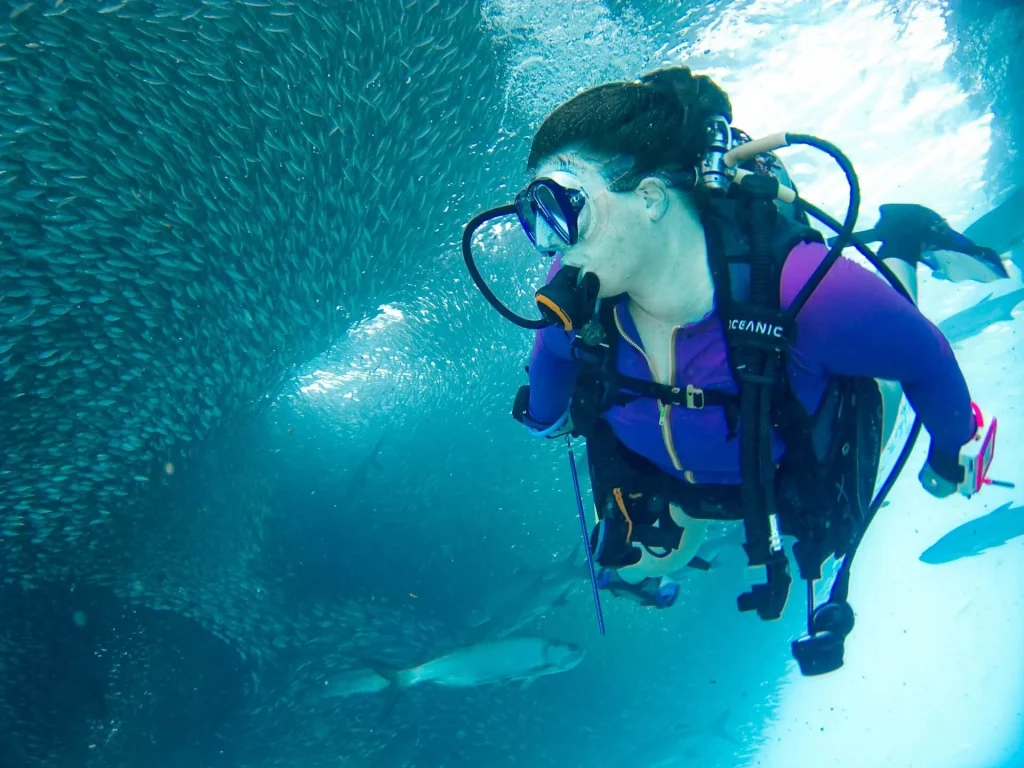
When getting into scuba diving for the first time, it’s probably best if you don’t immediately jump towards buying diving gear. This is because it’ll take some time before you figure out what you’re really looking for in equipment, and your interests and needs will change as you get more experience in scuba diving. Moreover, diving gear is expensive; so you’ll have to make sure that if you’re going to buy gear, make sure you’ll be using it regularly and that won’t be just laying around your lot for sale property.
Scuba diving is equipment-dependent, and diver requires a full set of properly fitting, well-maintained scuba diving gear before one can start diving. Most, if not all scuba diving courses come with rental gear along with the price of enrolling in the course, so it’s technically not mandatory for a diver to own a complete set of gear. However, owning diving gear does have its advantages. Those who own diving gear are generally a lot more confident and comfortable underwater than those who don’t have diving gear because they are familiar of the fit, maintenance, and function of their own gear.
Diving is supposed to be enjoyed to the fullest, but the safety rules are serious
Scuba diving requires your full attention so that accidents don’t happen. It’s important to make sure that you get good sleep, have eaten well, and haven’t drunk too much alcohol the night before you do the actual scuba diving – these affect how you will enjoy your dives. In addition, alcohol increase the risk for decompression sickness, so lay off the alcohol when you go diving and keep it in the fridge of your new home in your newly bought lot for sale for the meantime!
Go ask questions and don’t hold back!
When you’re already enrolled in your scuba diving course, ask anything from the instructors that you want to know about diving and your instructors will be very much willing to answer. If you hesitate on asking questions, just remember that instructors would rather explain something to you over and over again rather than you having unnecessary anxiety once you do the actual scuba diving. A significant part of feeling safe when scuba diving is to understand the working physics behind diving, so if you can’t remember or don’t understand something, go ask your instructor!
Scuba Diving Certification
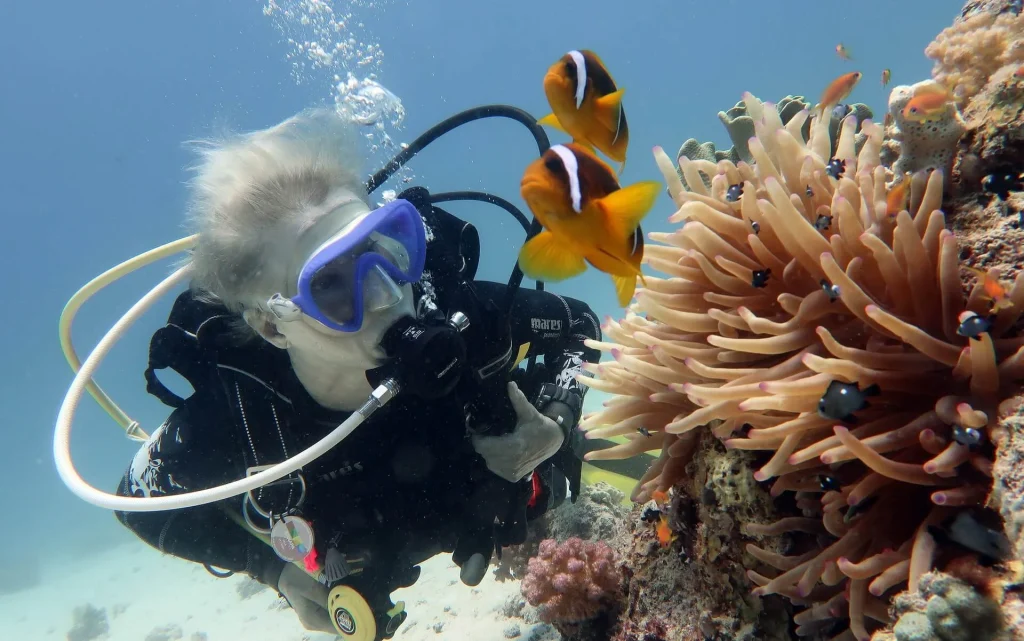
Do you need to get certified to go scuba diving?
Yes, it is ideal that you get certified before you go scuba diving. Think of it like driving a car – you shouldn’t just drive a car if you don’t have enough training and experience to use it that you don’t even have a driver’s license yet. Scuba diving is safe, but it is also a serious sport that demands your attention at all times. Once you get your diving license, you’ll be able to discover the world underwater which many of people don’t get the chance to see – you’ll see aquatic life, coral reefs, caverns, and the like.
The PADI certification
PADI means Professional Association of Diving Instructors, and it’s from this organization that you can take an open water certification course. Anyone 15 years or older can qualify for the PADI open water certification. Generally, enrolling in the PADI open water scuba diving certification course requirements show that good health and no major issues to obstruct you from diving safely are the only mandatory requirements. In some cases however, a physical handicap is not a contraindication for scuba diving; however it’s recommended to consult your doctor beforehand and find a suitable diving center. Overall, you can accomplish the PADI open water scuba diving course in 3-4 days; and if you were to decide to do the theoretical part at your own pace in the comfort of your newly purchased lot for sale, the practical part of the course will take about 2.5 days.
Diving Equipment
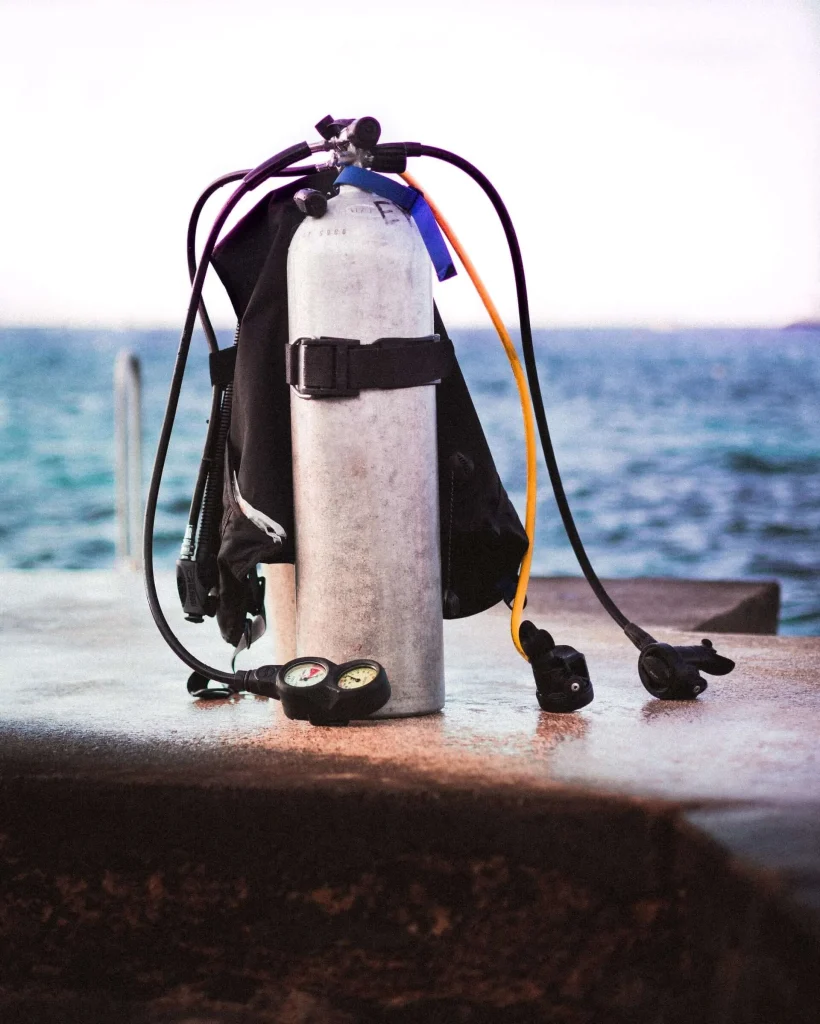
The “scuba” in scuba diving is an acronym for “self-contained underwater breathing apparatus.” These are the kinds of equipment that are used in scuba diving so that you can familiarize yourself with them.
Air cylinder
A crucial part of the equipment, the pressurized air is used by scuba divers since the pressure of the air inhaled from the air cylinder balances the surrounding pressure, which allows the inflation of the lungs and lets you breathe properly. Essentially, it contains pressurized air that scuba divers breathe in underwater.
Regulator
The regulator is the breathing apparatus, and it is what scuba divers breathe through underwater. It provides the appropriate ambient pressure and breathing gas, which makes sure that the diver can breathe smoothly without issue, no matter the depth of diving. Two stages comprise the regulator: the first stage involves reducing pressurized air from a high (300 bar) to intermediate (10 bar) pressure, while the second stage involves reducing the intermediate pressure to ambient pressure to make breathing easier.
Buoyancy control device
The buoyancy control device allows scuba divers to be able to stay at a certain depth underwater without kicking your fins to exert force. This conserves energy and uses up less of the air you have, and this lets you have a longer diving time.
Mask
The scuba mask is made of materials like glass and silicone. It allows a scuba diver not just to see clearly deep underwater but to also withstand the underwater pressure. Moreover, the scuba mask encloses a diver’s nose so that the pressure underwater is equalized, and the mask doesn’t forcefully suction into the diver’s face.
Fins
Although not ultimately necessary for scuba diving, it makes moving more convenient for the diver by having to exert less effort to move through the water; and this is what makes fins important. Less effort means less air used, thereby more diving time.
Wetsuit
The wetsuit is purposed to keep the scuba diver warm by trapping a layer of water between the suit and your skin, and your body heats up this layer of water up to your body temperature. The material of the wetsuit called neoprene is purposed to slow down the loss of heat because of its insulating properties.
Weights
In order to counteract the diver’s natural buoyancy, the weights are needed to make sure you stay underwater and don’t start floating when you stay still. Usually attached around the waist, the weights are one part of the equipment that makes scuba diving convenient and enjoyable.
Conclusion
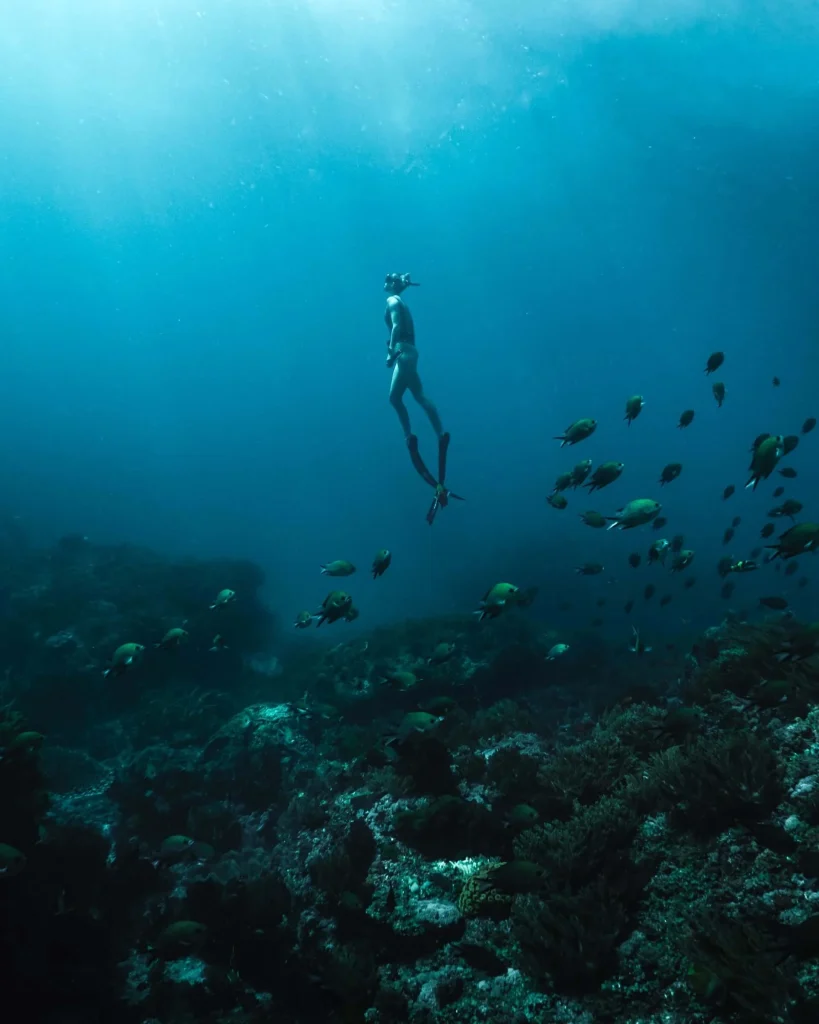
Now you know what to generally expect from scuba diving, as well as information regarding the equipment and diving certification. Still up for some scuba diving? Go enroll in a diving course for an underwater adventure outside your lot for sale purchase!
Related Blog: Adrenaline Inducing Hobbies That You Should Try


